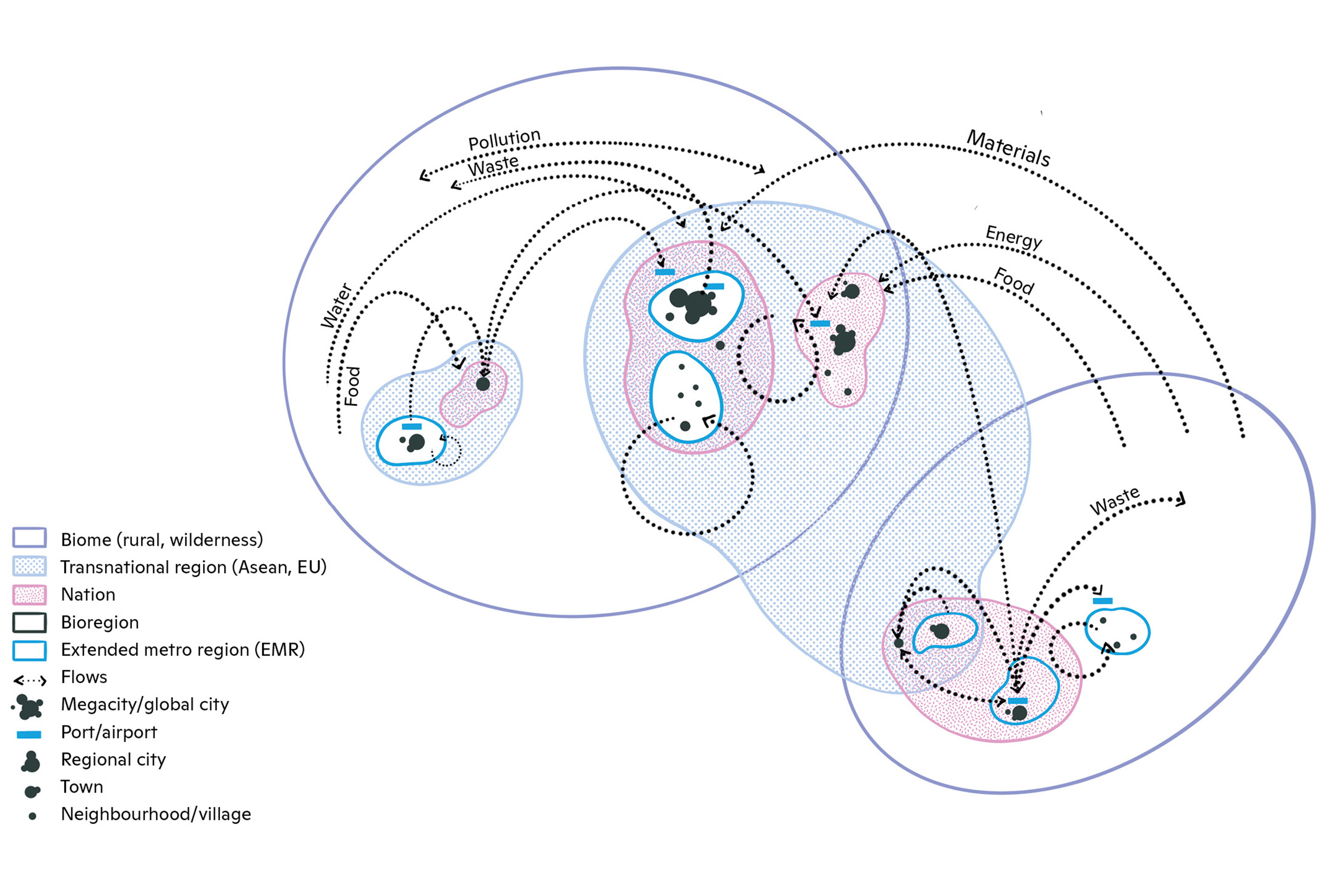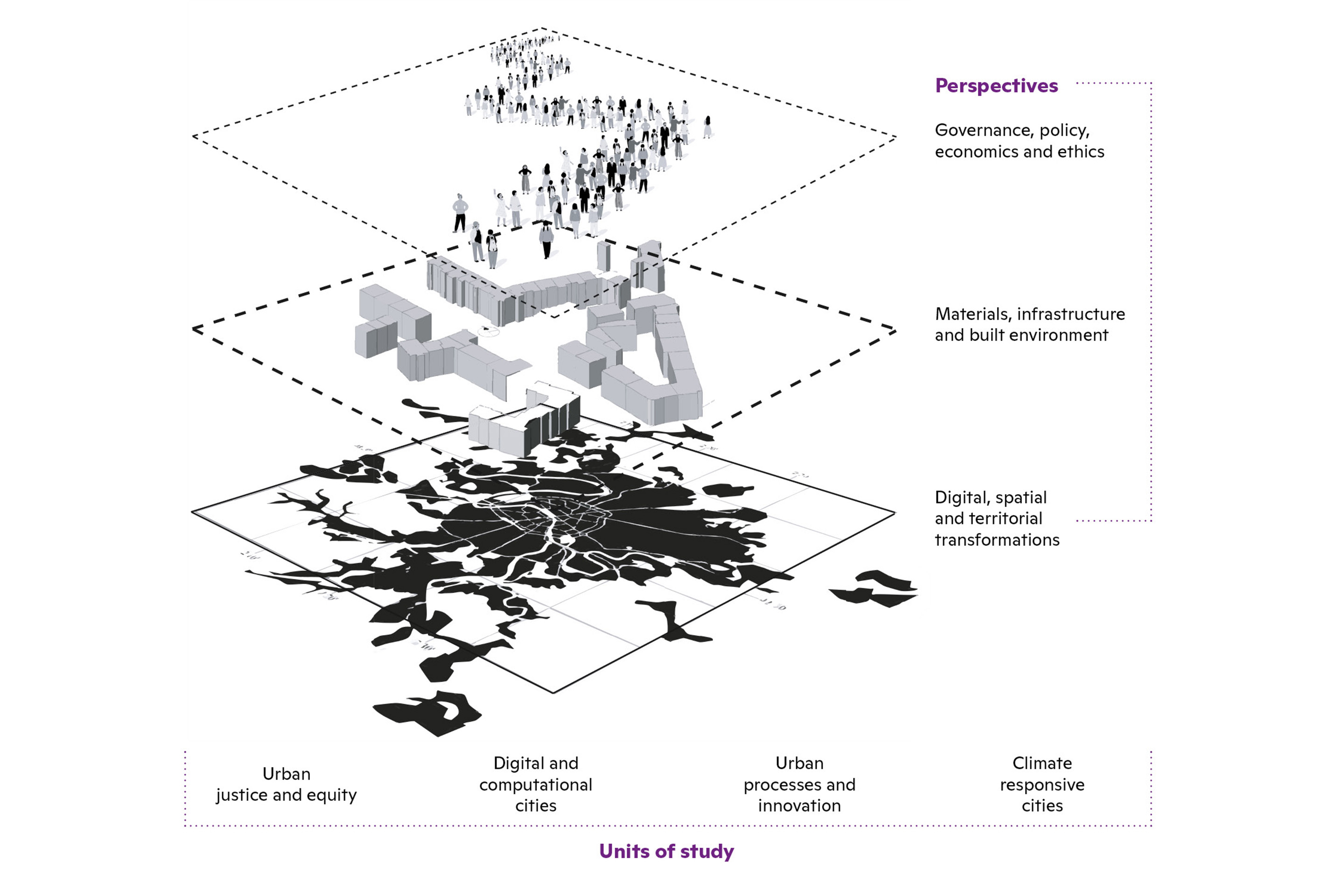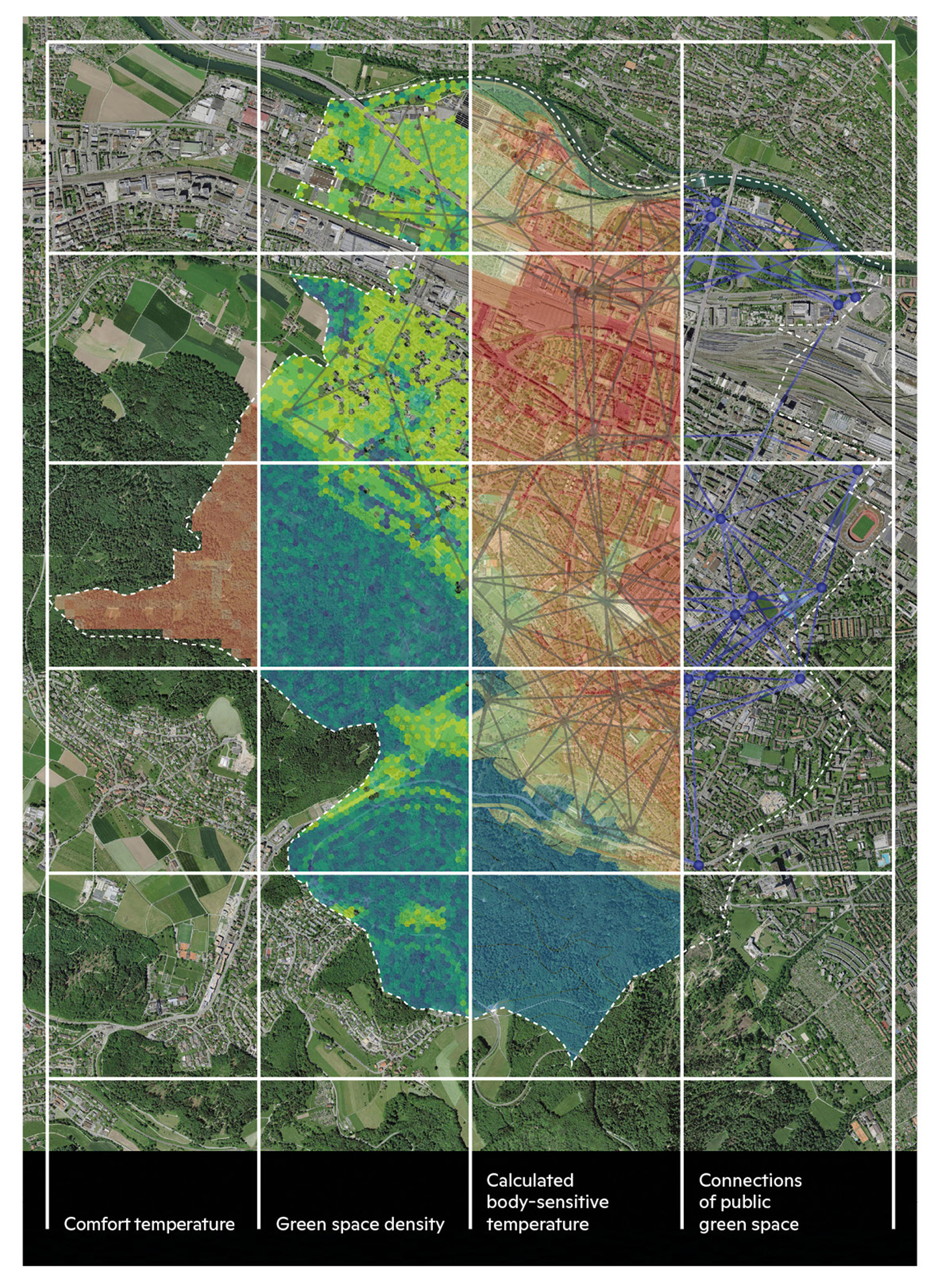Interdisciplinary research for innovative methods and tools
Future Cities Laboratory
Through science. By design. In place. Over time. Future Cities Laboratory adresses the complex challenges of sustainable and liveable urban development.
The laboratory
Future Cities Laboratory (FCL) is a pioneering international research laboratory dedicated to addressing the multifaceted challenges of urbanisation through interdisciplinary research. Since its establishment in 2010 in Singapore, FCL has advanced through Phases I and II, solidifying its reputation as a leading force in urban science under the auspices of the Singapore-ETH Centre (SEC).
The current Phase III, FCL Global, was established in December 2020 and operates across two hubs in Singapore and Zurich. This expansion harnesses the unique regional insights from Asia, building on the foundation laid by the existing FCL in Singapore, and incorporates perspectives from Europe, based at ETH Zurich, to enhance its research and approach with a broader range of viewpoints. We are now approaching the next phase, planned to start in summer of 2026: Phase IV.
Cities, as integral components of settlement systems, are recognised as complex and interconnected networks. The mission of FCL is to explore the emergence, self-organisation, and collective behaviour within these systems – phenomena that defy simple explanations when viewed in isolation.
Settlement systems
Our approach is based on the concept of settlement systems to capture the expanding, multiscale, and networked realities of contemporary urbanisation. While the concept of the city remains essential for understanding urban dynamics, it is increasingly inadequate for grasping the complexity of modern urbanisation.
We have adopted the term “settlement system” to better capture the diverse and interconnected scales of urbanisation today and to provide a framework for addressing the challenges they pose and advancing sustainable urban forms for the future. Settlement systems encompass both local and non-local habitats, such as neighbourhoods, suburbs, cities, hinterlands, and ecosystems – as well as the flows that sustain them, including water, energy, capital, and people.
The term integrates spatial and temporal dimensions: the seasonality of agricultural production, the ebb and flow of commuter traffic over daily or weekly cycles, the lifecycle of a neighbourhood, and the impacts of climate change on ecosystems. This approach allows for a comprehensive understanding of the dynamic processes shaping urbanisation, with the aim of fostering more resilient and sustainable settlement patterns.
Policymaking
Policymaking can be seamlessly integrated into the concept by adopting a systems-based, iterative, and context-sensitive approach that mirrors the complexity science and settlement systems framework of FCL. Below is a detailed explanation of how policymaking aligns with the key elements of “Through science. By design. In place. Over time.”. FCL pursues three main objectives:
Understanding: investigating how complex urban systems function and interact with one another.
Developing solutions: identifying novel methods to better comprehend and regulate such systems.
Addressing real-world challenges: applying this knowledge to tackle concrete issues in fields such as urban planning, energy, and mobility.
With this holistic approach, the programme brings together experts from diverse disciplines and fosters innovative solutions for the challenges of the city of the future.
Complex systems
Complex systems, encompassing domains as varied as ecosystems, social networks, financial markets, and urban environments, are characterised by interactions among numerous agents or elements, leading to unpredictable outcomes and emergent properties.
The FCL programme employs a range of theoretical and computational tools – including mathematical modelling, network theory, and agent-based simulations – to investigate the dynamics and principles governing these systems. Key areas of focus include feedback loops, non-linearity, resilience, adaptation, integration, transformation, and the exploration of system boundaries.
The objective of studying the complexity of cities is threefold: to gain deeper insights into the behaviour of complex systems, to develop innovative methodologies for understanding and managing them, and to solve real-world problems across multiple domains. The programme takes a holistic approach to uncover the intricate nature of complex systems, promoting interdisciplinary deep collaboration and fostering innovative thinking.
Contributions
FCL Global makes significant contributions to urban studies and policymaking in the following areas.
- Urban planning: The programme provides urban planners and decision-makers with a deeper understanding of the dynamic nature of cities. Insights into the complex interactions between urban systems – such as transportation, housing, and energy – enable planners to make informed decisions to enhance resilience and sustainability.
- Data analysis and prediction: By leveraging big data and advanced analytics, complexity science can identify patterns within urban systems, enabling improved prediction and management of challenges such as climate change, ageing populations, and traffic congestion through modelling. This is essential for optimising resource management, energy efficiency, public services, and decision-making in the sustainable development of cities.
- Social dynamics: Cities are centres of social complexity. The programme illuminates social networks, cultural patterns, and socio-economic behaviours, helping policymakers to foster urban development and address issues such as inequality and community engagement. The research is context-sensitive, taking into account the unique spatial, ecological, and socio-cultural realities of a given region. FCL’s dual hubs in Singapore and Zurich provide a model for integrating diverse regional perspectives into policymaking, ensuring that solutions are locally relevant while addressing global urban challenges.
The programme serves as a guide for navigating the complexity of urban development and its hinterlands, offering innovative solutions for shaping more resilient, adaptive, and thriving urban environments.
The value
Our research programme aims to bridge the gap between traditional urban planning and future challenges by directly addressing the complexities of contemporary urban growth. Its interdisciplinary approach and innovative analytical tools contribute to a more comprehensive understanding of urban dynamics and provide practical solutions for the development of our living environments.
The integration of legislative aspects into the programme facilitates the formulation of data-driven, inclusive, context-specific, and adaptive policies. This approach ensures that policies not only address current urban challenges, but also anticipate and respond to future complexities. In doing so, it improves the quality of urban life through the lens of resilience and sustainability.
Amidst all this complexity, the most important perspective is the human one.




